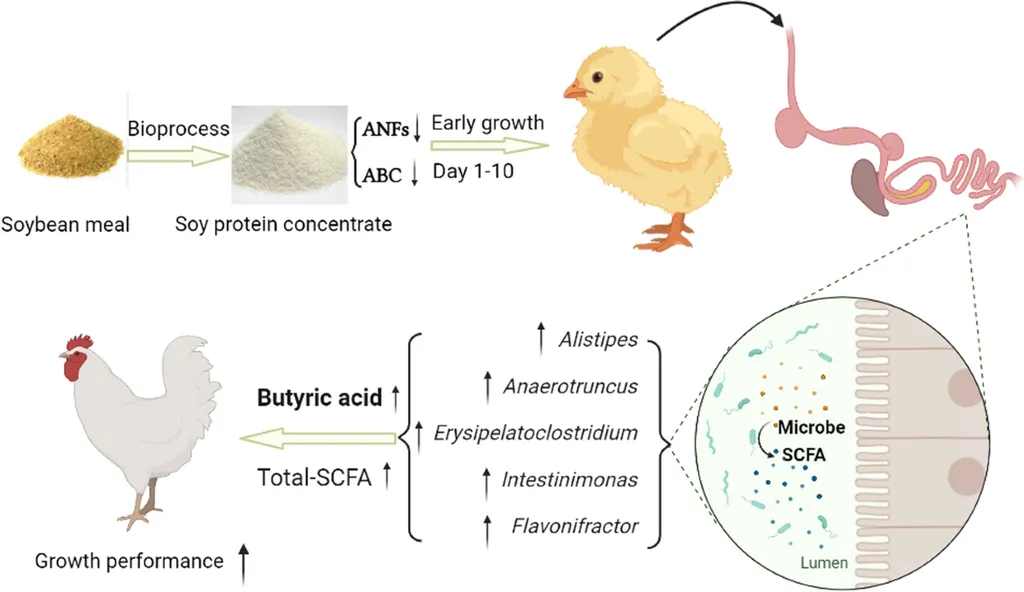In the quest to optimize broiler chicken diets for better growth and health, researchers have discovered that enzyme inclusion and fermentation of canola-based diets yield distinct benefits and challenges. A recent study led by A. Hafeez from the Department of Poultry Science at The University of Agriculture, Peshawar, Pakistan, published in the journal “Archives of Animal Breeding” (Archiv für Tierzucht), sheds light on how these dietary supplements can influence various aspects of broiler performance.
The study involved 900 male Hubbard broilers, divided into three groups: a control diet, fermented canola meal at varying levels (6%, 12%, and 18%), and enzyme-treated canola meal at the same levels. The findings revealed that enzyme treatments consistently led to superior weight gain in the broilers. “Enzyme supplementation seems to enhance the overall growth performance of broilers,” noted Hafeez, highlighting the potential commercial benefits for poultry farmers.
However, the story is more nuanced when it comes to fermentation. While lower levels of fermented canola meal (6% and 12%) improved nutrient digestibility, particularly of crude protein and crude fiber, higher levels (18%) had a negative impact on weight gain and feed conversion ratio (FCR). This suggests that there is an optimal level of fermentation that can be beneficial, but exceeding that threshold can be detrimental.
Carcass traits, such as dressing percentage and eviscerated weight, were significantly higher in both enzyme-treated and fermented groups, indicating better meat yield. However, bone characteristics like bone weight, robusticity index, and tibio-tarsal index were decreased in birds fed with fermented diets. “This could imply a trade-off between meat yield and bone health when using fermented diets,” Hafeez explained.
Blood biochemical analysis showed that triglyceride levels were reduced in broilers fed with a fermented diet, while other parameters like cholesterol and glucose remained unaffected. This could have implications for the nutritional quality of the meat produced.
The study’s findings suggest that optimal levels of fermentation and enzyme supplementation can enhance broiler productivity and health. For the poultry industry, this means a potential shift towards more tailored dietary supplements that can maximize growth and meat yield while maintaining overall health. As Hafeez put it, “The key is to find the right balance and understand the specific effects of each dietary supplement.”
This research could pave the way for future developments in poultry nutrition, encouraging further studies to explore the intricate balance between different dietary supplements and their impacts on broiler health and productivity. As the industry continues to evolve, such insights will be crucial in meeting the growing demand for poultry products while ensuring the well-being of the birds.

